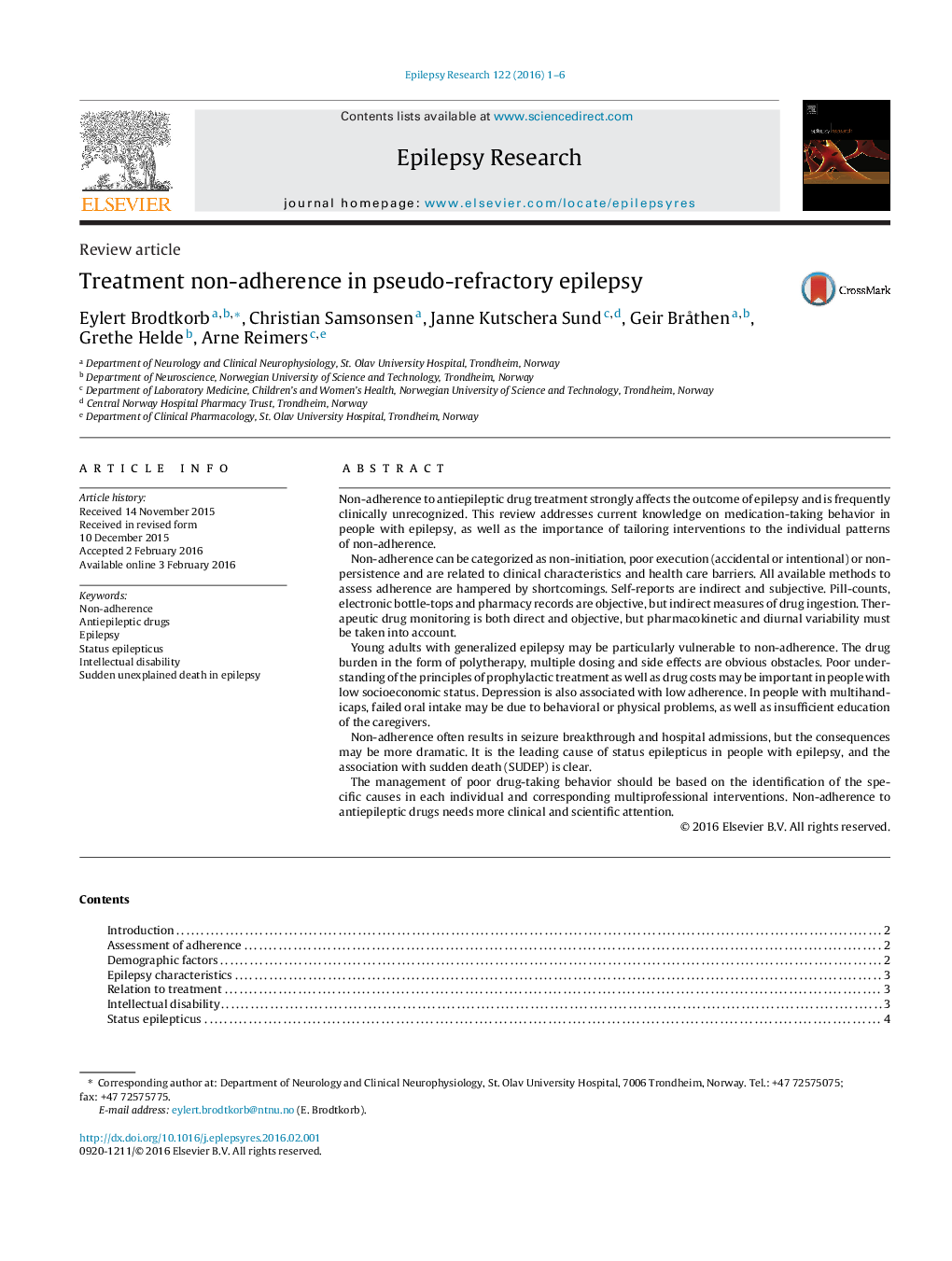| Article ID | Journal | Published Year | Pages | File Type |
|---|---|---|---|---|
| 3051947 | Epilepsy Research | 2016 | 6 Pages |
•Non-adherence to antiepileptic drug treatment is common and often leads to seizures.•Clinically unrecognized non-adherence is often mistaken as drug-resistant epilepsy.•Its various causes may be related to patient, disease and health care characteristics.•The specific causes should be identified in each patient.•Interventions should be tailored accordingly.
Non-adherence to antiepileptic drug treatment strongly affects the outcome of epilepsy and is frequently clinically unrecognized. This review addresses current knowledge on medication-taking behavior in people with epilepsy, as well as the importance of tailoring interventions to the individual patterns of non-adherence.Non-adherence can be categorized as non-initiation, poor execution (accidental or intentional) or non-persistence and are related to clinical characteristics and health care barriers. All available methods to assess adherence are hampered by shortcomings. Self-reports are indirect and subjective. Pill-counts, electronic bottle-tops and pharmacy records are objective, but indirect measures of drug ingestion. Therapeutic drug monitoring is both direct and objective, but pharmacokinetic and diurnal variability must be taken into account.Young adults with generalized epilepsy may be particularly vulnerable to non-adherence. The drug burden in the form of polytherapy, multiple dosing and side effects are obvious obstacles. Poor understanding of the principles of prophylactic treatment as well as drug costs may be important in people with low socioeconomic status. Depression is also associated with low adherence. In people with multihandicaps, failed oral intake may be due to behavioral or physical problems, as well as insufficient education of the caregivers.Non-adherence often results in seizure breakthrough and hospital admissions, but the consequences may be more dramatic. It is the leading cause of status epilepticus in people with epilepsy, and the association with sudden death (SUDEP) is clear.The management of poor drug-taking behavior should be based on the identification of the specific causes in each individual and corresponding multiprofessional interventions. Non-adherence to antiepileptic drugs needs more clinical and scientific attention.
